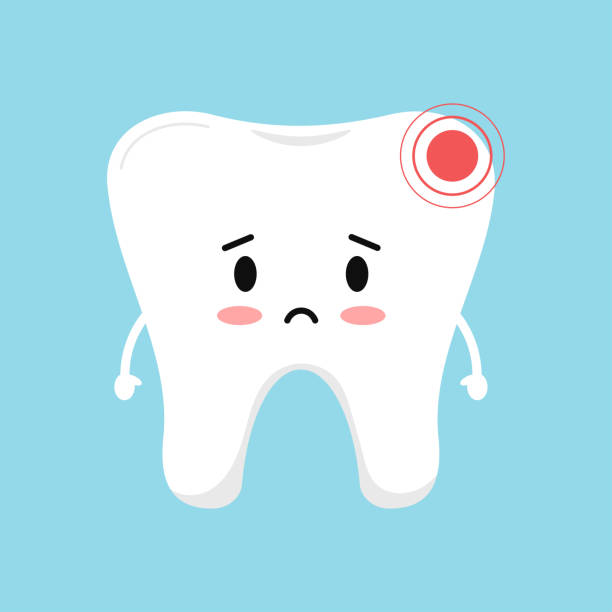
Do you experience sensitive teeth when trying to enjoy your favorite ice cream or sip on a steaming cup of coffee? If so, you’re not alone. Millions of people around the world suffer from sensitive teeth, a condition that can make even the simplest pleasures a painful experience. The good news is that sensitive teeth can be managed effectively with the right care and techniques. In this comprehensive guide, we’ll delve into the causes of sensitive teeth and provide you with a range of tips to help you enjoy a pain-free smile.
Understanding Sensitive Teeth: The Root Causes
Sensitive teeth, also known as dentin hypersensitivity, occurs when the protective layer of enamel on your teeth wears down, exposing the underlying dentin. This dentin contains microscopic tubules that lead to the nerve center of your tooth, making it more susceptible to external stimuli like temperature, acidity, and pressure. Some common causes of sensitive teeth include:
- Brushing Technique: Aggressive brushing or using a hard-bristle toothbrush can wear down enamel and lead to gum recession, exposing sensitive areas of your teeth.
- Gum Recession: As gums recede due to factors like gum disease or improper brushing, the tooth roots become exposed, causing sensitivity.
- Diet Choices: Consuming highly acidic foods and drinks, as well as excessive consumption of sugary items, can erode enamel and trigger sensitivity.
- Teeth Grinding (Bruxism): Grinding your teeth, especially at night, can gradually wear down enamel and contribute to sensitivity.
- Dental Procedures: Some dental treatments, such as teeth whitening, can cause temporary sensitivity.
- Cracked or Fractured Teeth: Damaged teeth can expose dentin and lead to sensitivity.

Caring for Sensitive Teeth: Your Complete Guide
- Choose the Right Toothpaste: Opt for toothpaste specifically formulated for sensitive teeth. These toothpastes usually contain desensitizing agents that help block pain signals from the nerves.
- Soft-Bristle Toothbrush: Switch to a soft-bristle toothbrush to prevent further enamel abrasion and gum recession. Brush gently in a circular motion.
- Gentle Brushing Technique: Avoid aggressive brushing. Use light pressure and avoid brushing immediately after consuming acidic foods, as your enamel may be temporarily softened.
- Fluoride Mouthwash: Rinse with a fluoride mouthwash to strengthen enamel and reduce sensitivity. Incorporate it into your daily oral care routine.
- Avoid Acidic Foods and Drinks: Limit your intake of acidic beverages like citrus juices and sodas. If you do consume them, use a straw to minimize contact with your teeth.
- Balanced Diet: Consume a balanced diet rich in calcium and vitamin D, which are essential for maintaining strong teeth and bones.
- Floss Regularly: Gently floss between your teeth to remove food particles and plaque, promoting gum health and reducing sensitivity.
- Night Guards for Bruxism: If you grind your teeth, consider using a night guard. This dental appliance provides a barrier that prevents enamel wear during grinding.
- Desensitizing Toothpaste: Apply desensitizing toothpaste directly to the sensitive areas and leave it on for a few minutes before rinsing. This can help provide immediate relief.
- Soft-Picks or Interdental Brushes: These tools can clean between teeth without causing additional enamel wear, unlike some dental floss.
- Regular Dental Check-ups: Schedule routine dental visits for professional cleanings and to address any emerging dental issues promptly.
- Fluoride Treatments: Ask your dentist about fluoride treatments to strengthen enamel and reduce sensitivity.
- Avoid Teeth Whitening: Steer clear of teeth whitening treatments if you’re experiencing sensitivity. Consult your dentist for alternative solutions.
- Limit Alcohol and Tobacco: Excessive alcohol consumption and tobacco use can contribute to gum disease, which can worsen sensitivity.
- Stay Hydrated: Drinking water helps maintain optimal saliva production, which protects your teeth and minimizes sensitivity.
When to Consult a Dentist
While home care can alleviate mild sensitivity, it’s crucial to consult a dentist if:
- Your sensitivity persists or worsens despite following a proper oral care routine.
- You experience sudden and severe sensitivity without an apparent cause.
- You notice signs of gum disease, such as bleeding or swollen gums.
- You have a cracked or chipped tooth that needs professional attention.
- Your sensitivity is causing persistent discomfort and affecting your daily life.
In Conclusion
Caring for sensitive teeth requires a holistic approach that combines proper oral hygiene practices, dietary adjustments, and regular dental check-ups. By following these tips and adopting a gentle oral care routine, you can enjoy your favorite foods and drinks without cringing in pain.
If your sensitive teeth do not resolve, then don’t hesitate to contact Lamar Dental. We accomodate same day emergency dentist appointments so you can get fast relief.

0 comments on “Ultimate Guide to Caring for Sensitive Teeth: Tips for a Pain-Free Smile”